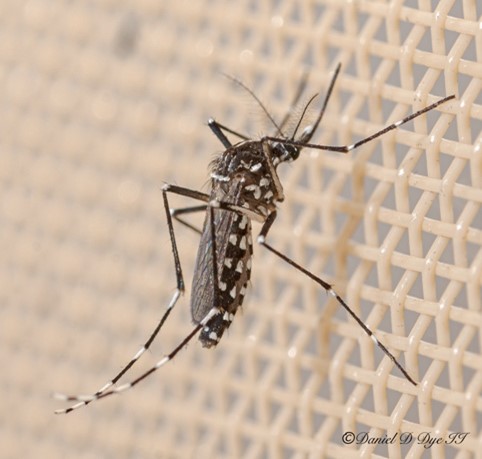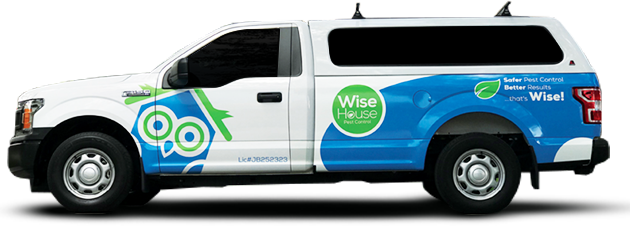8 Tips for Controlling Mosquitoes in South Florida

Many of us enjoy the outdoor life here in Florida. There’s hiking, camping, horseback riding, hanging around the pool, sitting on the deck enjoying our favorite beverage…I think you get the message. But, with all this fun, comes annoying insects. At the top of the list are mosquitoes!
The following are some mosquitoes you may encounter during your daily and nightly activities in Boynton Beach, Fl.

One commonly encountered mosquito is the Asian Tiger Mosquito (Aedes albopictus), an exotic, invasive mosquito now found almost everywhere. It is known to transmit several diseases including West Nile Virus. There is some indication they may also be able to carry the Zika Virus. The female will lay her eggs in Autumn in moist areas. Come spring with a little rain, they are out and about looking for warm-blooded animals to feed on.

Another one to look out for is the Yellow Fever Mosquito (Aedes aegypti). This mosquito is known to transmit Yellow Fever, as well as Dengue, Chikungunya Virus, and Dog Heartworm. It is the primary vector of the Zika Virus. The good news is, none of these pathogens are common in the United States with the exception of Dog Heartworm.

The Eastern Treehole Mosquito (Aedes triseriatus) is another species looking to feed on your blood. Their larvae develop in tree holes (hence the name) but will also breed in other types of containers including rain barrels. It is the primary carrier of La Crosse Encephalitis.
Then we have the Southern House Mosquito (Culex quinquefasciatus). This mosquito will develop in almost anything that holds still water. The Southern House Mosquito is a carrier of the viruses that cause West Nile and St. Louis Encephalitis (SLE).
The Florida SLE Mosquito (Culex nigripalpus), is quite common and found throughout that state. This species is a vector of SLE, West Nile Virus, Eastern Equine Encephalitis, and Dog Heartworm. Much like its cousin, the Southern House Mosquito, it will inhabit almost anything that holds still water.
The Gallinipper Mosquito (Psorophora ciliate) is the largest mosquito found in Florida and throughout the south. Although research has shown that many of the aforementioned pathogens have been tested for and found in this large mosquito, there are no studies confirming it is a vector of those viruses. They become a nuisance after heavy rains cause flooding and puddling in low-lying areas such as pastures and drainage ditches. This giant of a mosquito is quite capable of penetrating clothing and delivering a painful bite!
You may be asking yourself, what can I do to get rid of mosquitoes?
- You can start with not allowing water to stand in artificial containers for long periods of time.
- Birdbaths and pet water bowls should be cleaned and refilled every few days.
- If you have a pond or other bodies of water that can’t be drained, you can use mosquito dunk cakes. These floating dunk cakes release bacterial agents that kill mosquito larvae.
- When enjoying the outdoors, use a mosquito repellent for protection. They definitely help reduce mosquito bites. Remember to follow the label guidelines when using repellents and mosquito dunk cakes.
- Be sure to clean your roof gutters and downspouts. This will go a long way in preventing mosquitoes and other pests from breeding up there.
- Remove overgrown foliage, it will help to make your property undesirable to mosquitoes. Mosquitoes love cool, dark, and out-of-the-wind areas.
- Make sure your windows and doors have no cracks or holes in the screens.
- Use fans near doors on the exterior, mosquitoes can’t fly well through the air current.
Whether you live in Port St. Lucie, Boynton Beach, Lake Worth, or any other south Florida city, avoiding mosquitoes is tricky. If you’re looking to fight the bite, following these simple steps will have you on your way to a much more enjoyable spring and summer with more control of mosquitoes.

(561)-727-8239
Main Office
4781 N Congress Ave Ste 289
Boynton Beach, FL 33426
Map & Directions
Quick Links
Human & Pet-Friendly Pest Control
For Not-So-Friendly Pests!

